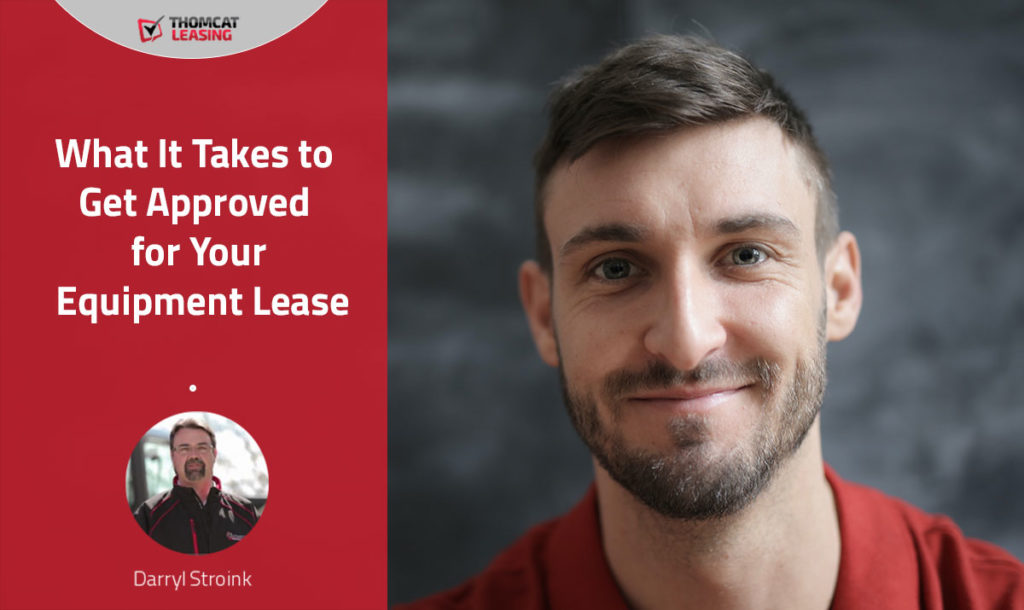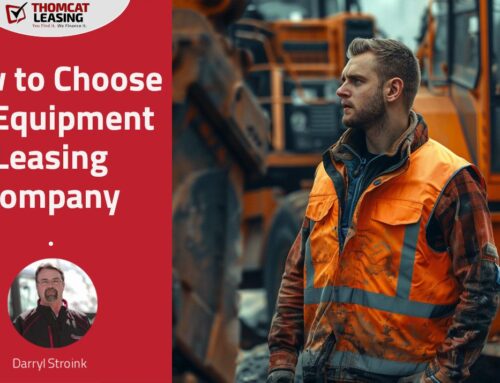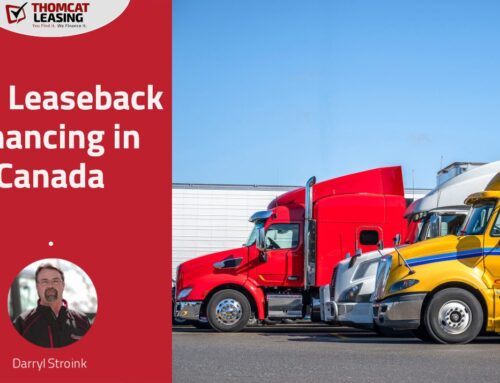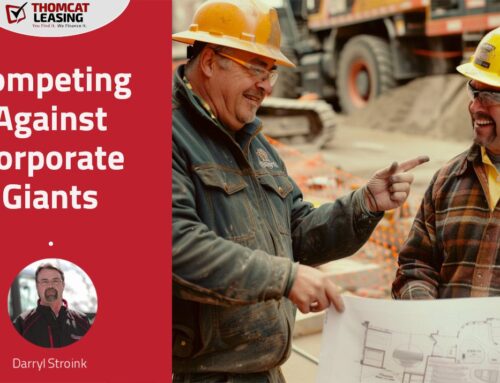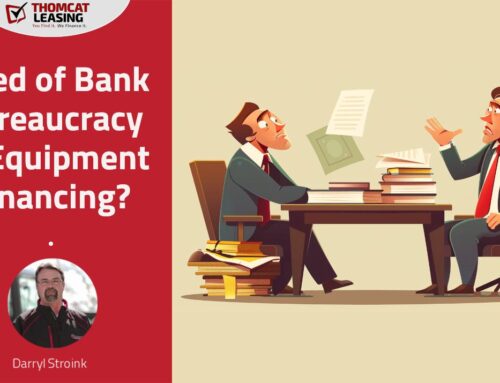The Basics Your Lender Will Want to See and How You Can Optimize for the Best Rates
Equipment leasing is a powerful business growth tool and is a lot more flexible than a traditional bank loan. Leases are easier to qualify for, offer more stress-free terms and can usually be obtained without a down payment.
Though the up-front costs to you may be minimal, they do represent a major investment for the lender. Your lender will be playing it safe, especially in this day and age, and looking for indicators that your business is a good credit risk.
Lease brokers have specific measures they look for in a lease application. Some of these are things you can optimize, like a strong business plan and a solid credit score. Some are factors out of your control, like the number of years you’ve been in business and your credit history.
Knowing beforehand what the lender wants to see is key to a successful application.
Credit Score
Your credit score will unquestionably affect your approval and the rates your lender can offer. A poor credit score is not always a deal-breaker, but it does make the process more difficult.
Typically, a score below 620 (C and D credit) means leasing will likely not be an option at this time. Scores between 620-680 (B credit) are considered midrange. They usually mean a little extra paperwork, possible collateral or security requirements and a slightly higher rate. Scores over 680 (A credit) are considered ideal. For businesses with a strong credit rating, lenders are able to offer their best rates and can afford to be generous with fee and paperwork waivers.
Since credit scores have such a far-reaching effect on lease terms, it pays to do what you can to clean up your rating before applying for a lease. Credit scores are built over time, but there are steps you can take to boost your rating fast.
- Get a copy of your business credit report and check for errors or inaccuracies.
- Decrease your credit utilization ratios. You can do this by paying off any manageable outstanding balances and/or increasing your credit card or line of credit limits. The extra available unused credit will make you look like a better risk and increase your credit score.
- Check that your regular suppliers and vendors share payment data with business credit-reporting agencies. The more positive payment history on your file the better.
- If you have outstanding balances with collection agencies, and you’re able to make good on them, be sure to ask for “pay to delete”. This indicates the agency will delete the negative account from your credit report. This is important as payment will only boost your score if the negative account history is removed completely.
Credit History
While a lender looks at all components of your credit score during the approval process, aspects of your credit history will be weighted more heavily. Be aware that certain negative credit events will mean an automatic denial on a leasing application.
If, within the last 5 years, you or your business have filed for bankruptcy, filed a consumer proposal, undergone debt consolidation or frequently defaulted on payments, leasing will not be an option.
Note that in the case of partnerships and sole proprietors your personal financials are taken into consideration and for corporations only your business financials are considered.
Business Track Record
Lenders like to have at least 2 years’ worth of business activity to base their lending decisions on. But what if you are a new business? Is leasing an option? Absolutely.
You may not get approved for that half-million-dollar mining truck, but a skid-steer loader is totally in the ballpark. A piece of equipment with a lower cost and higher resale value is a low-risk investment for a lender. Low risk for them means a higher likelihood they will be willing to take a chance on your new start-up.
Be thoughtful and strategic in acquiring those early assets and you’ll be in a strong position to grow down the road.
Note that you’ll likely be asked to provide personal financial documentation if business documentation is insufficient. Letting your lender know you have those financial statements and tax documents organized sends a clear signal that you are prepared, responsible and a good credit risk.
Intended Use
Making a good pitch for why your business needs the equipment is more important than you might think. A clear and compelling intended use statement gives the lender confidence that your business will make good on their money outlay and be in a position to pay them back long term. Be sure your plan answers the following questions:
- What will the equipment be used for?
- Why is it a necessary purchase at this time?
- How do you see the purchase growing your business?
Before they stamp your application, your lender will need assurances your business is a good investment. Get all your ducks in line beforehand and save yourself money and time.
Ready to Apply for Your Equipment Lease?
If you’re not sure where you stand, it’s good to be prepared. Seek out an equipment lease pre-approval, so you can shop with confidence.
Our brokers have the connections and expertise needed to make your application as successful as possible. There’s no obligation to use the lease approval. We will work with you to find the best rates, minimize paperwork and get you approved quickly. Apply today!
Small Business Lease Guide
See the equipment leasing guide for more tips on how to get the most out of leasing!


